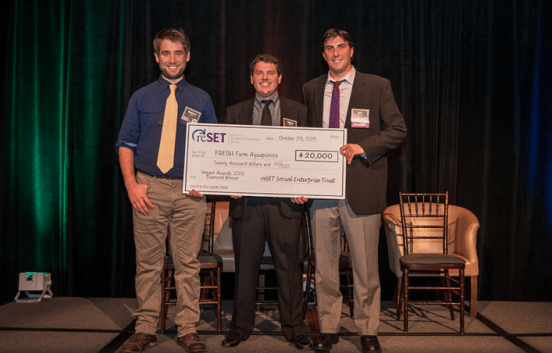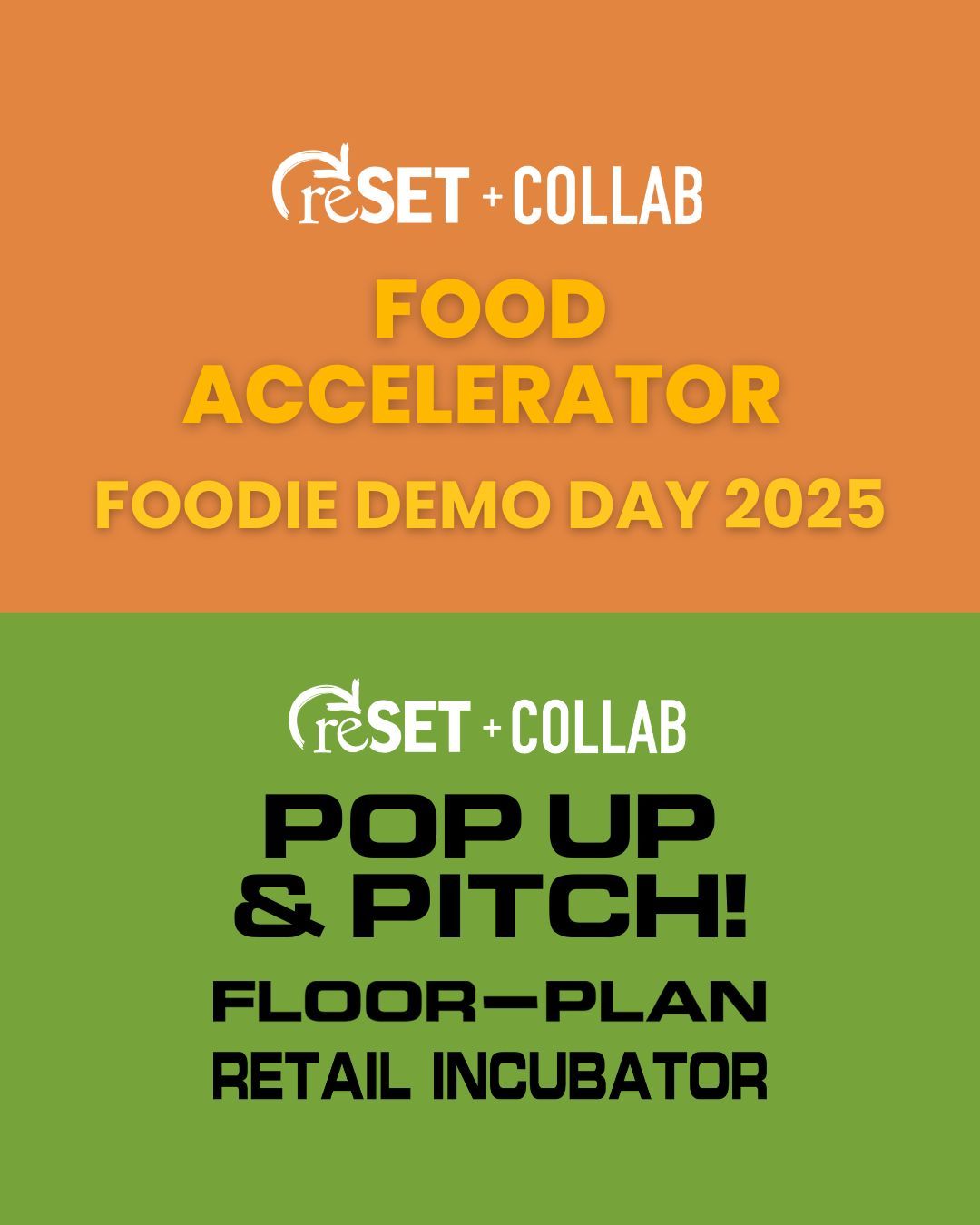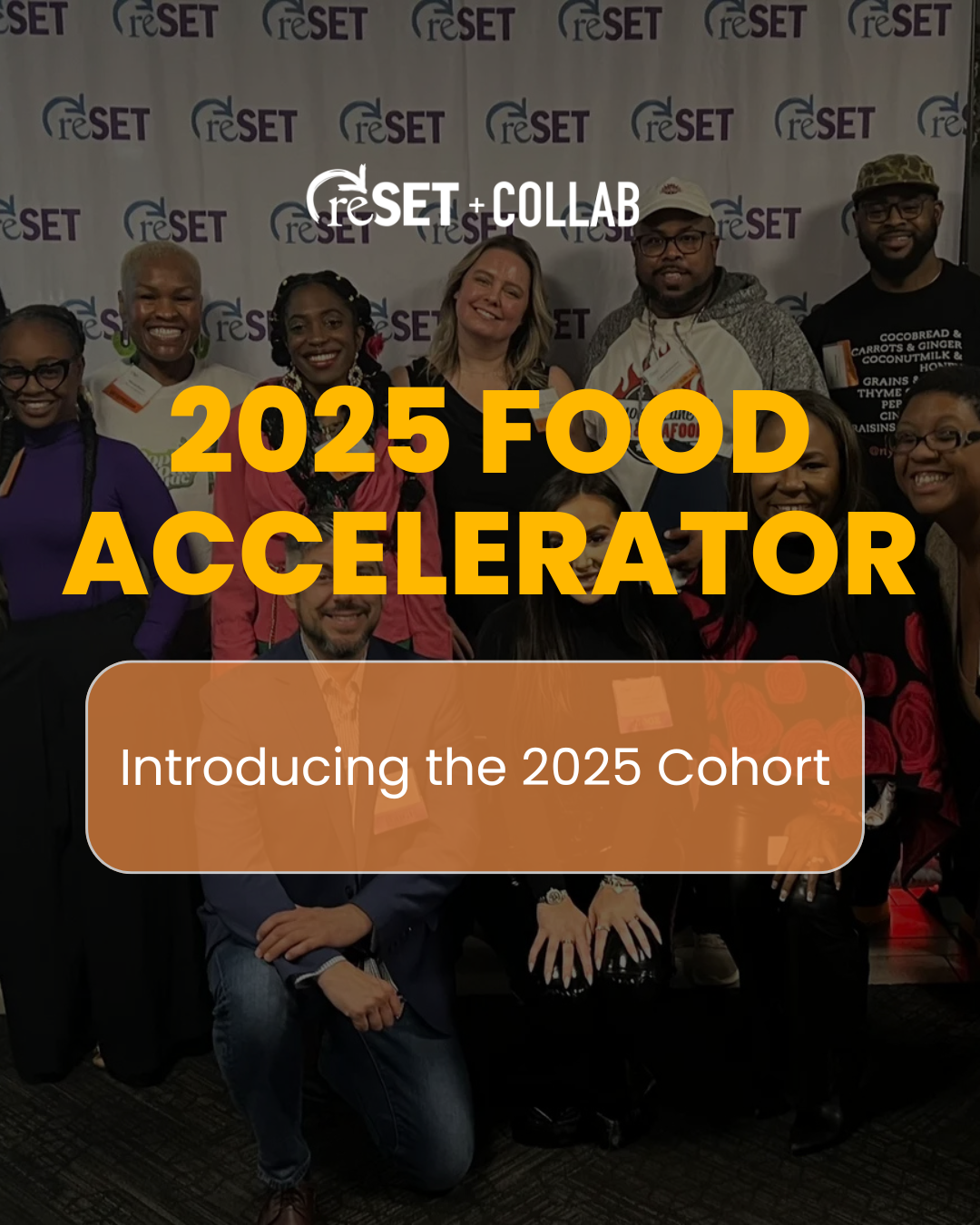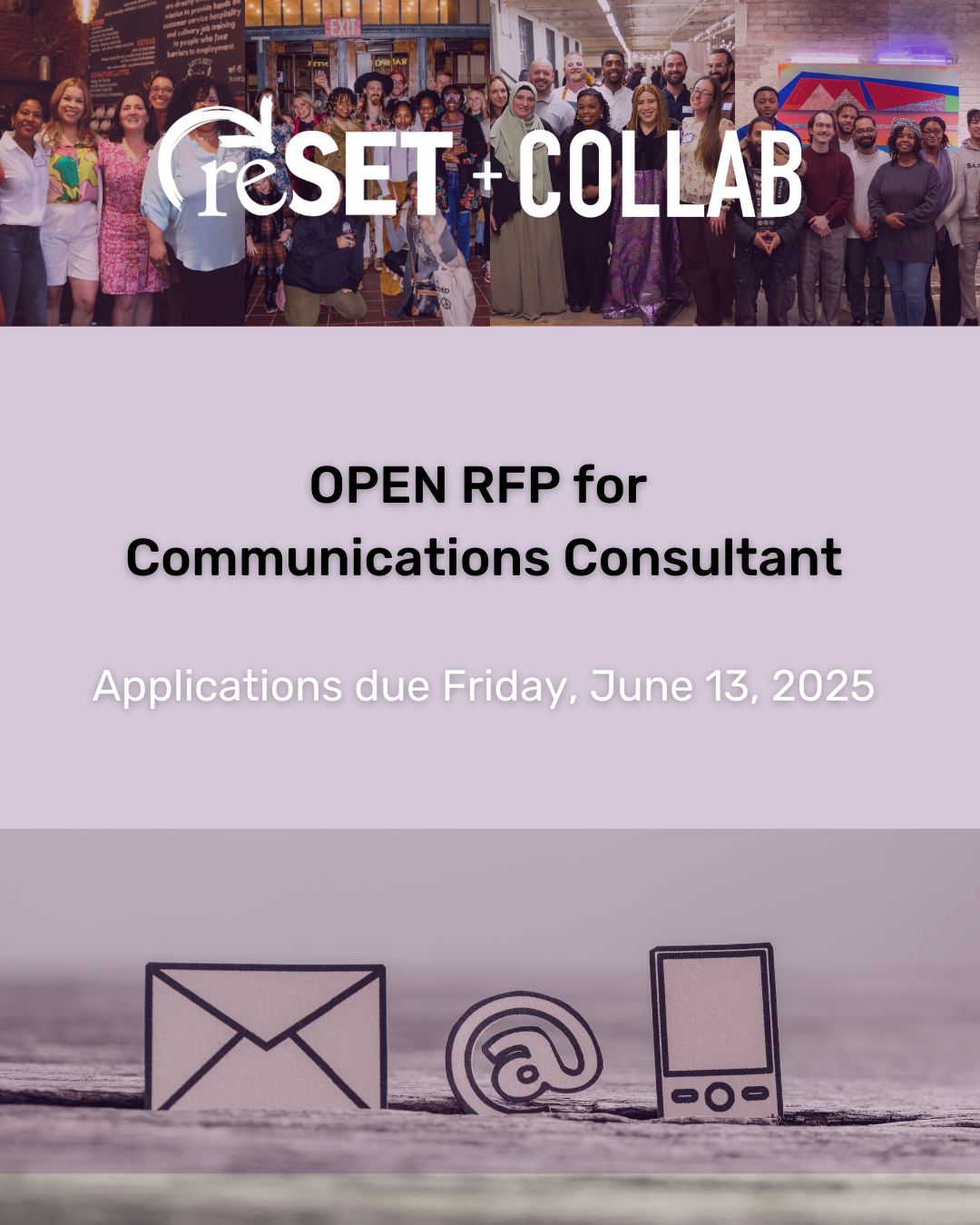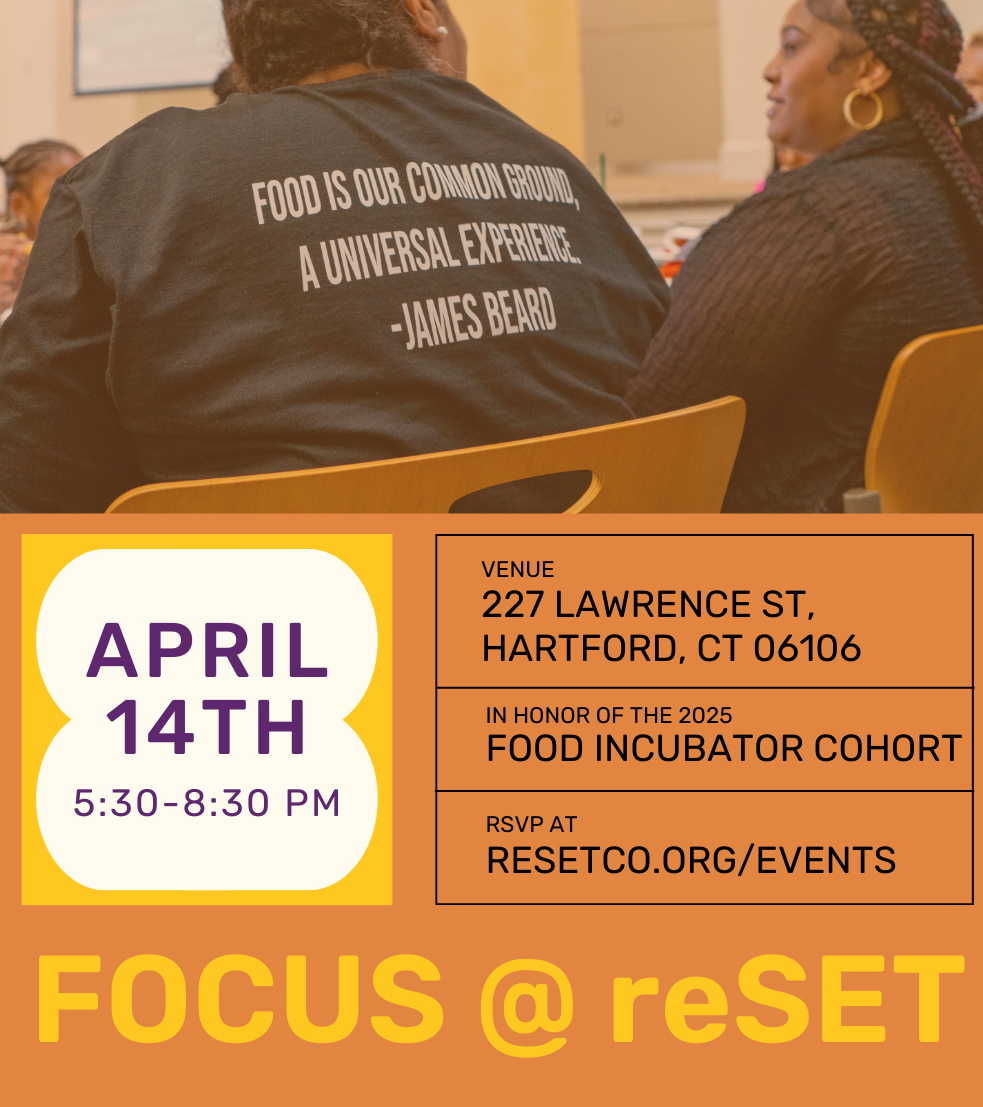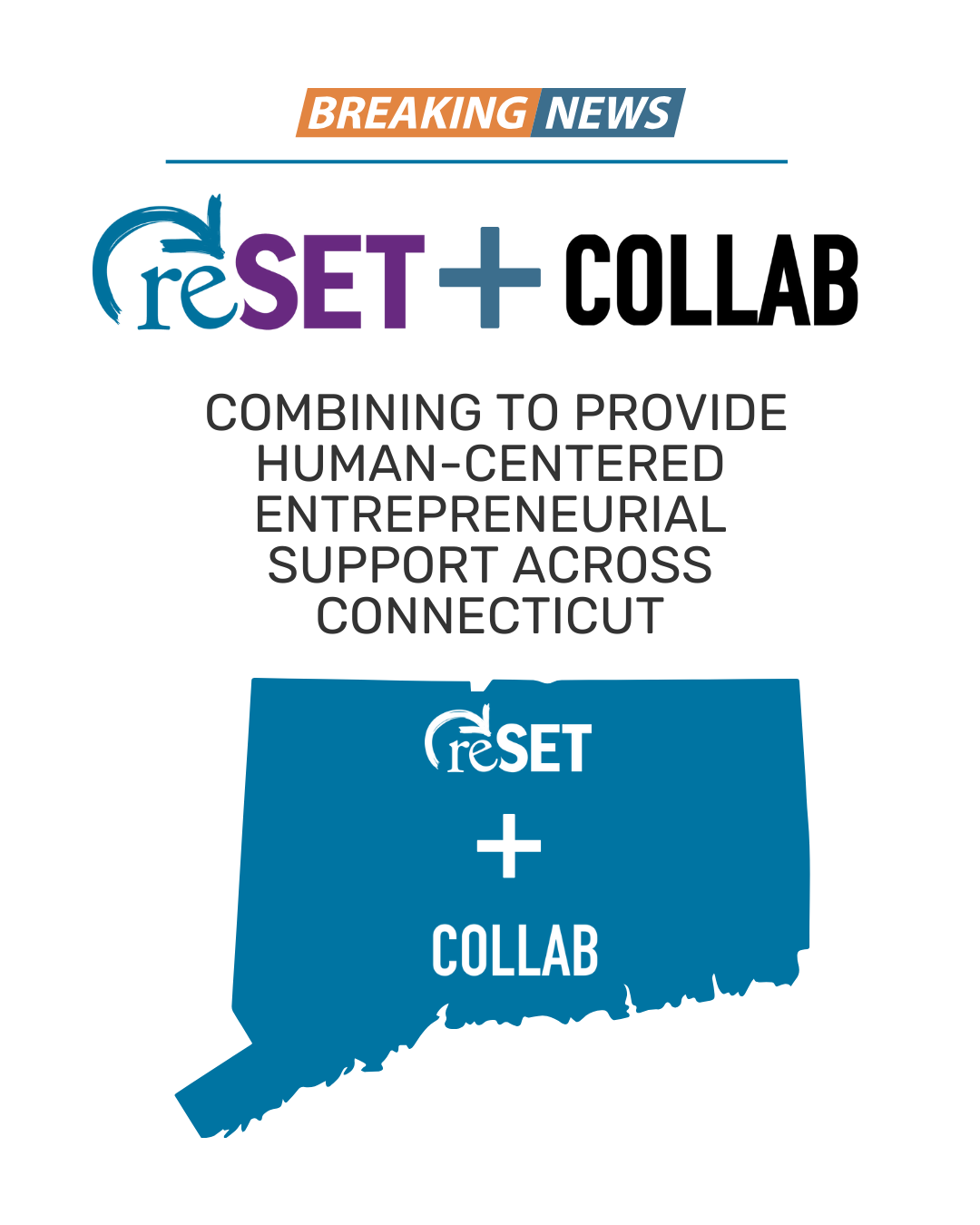We’ve recently been going behind the scenes with FRESH Farm Aquaponics, the Diamond Winner of our ’15 Impact Challenge. In Part I, we heard from Partner & President Kieran Foran. In Part II, we heard from Partner & Chief Discovery Officer Eric Francis. In Part III (below), we hear from CEO Spencer Curry. Happy reading and watching!
To learn more about this great group of guys and their social enterprise, please visit: http://www.freshfarmct.org.
Over the past few months, the FRESH Farm Aquaponics (FFA) team and I have been working with reSET to get our story out there. In Part I and II of this blog series, my business partners Kieran and Eric spoke about our startup’s origins. I am now going to take us through that fateful night at reSET’s Impact Challenge Awards Night, and preview what we are cooking up for our small business, and for Connecticut!
Looking Back
October 29, 2015 is a day I will never forget. I vividly remember finding a parking spot in front of The Society Room’s main entrance, where reSET was throwing their annual competition’s culminating event. This might have been a once-in-a-lifetime victory, but I knew the rest of the night had much more in store. I walked in through the side door because the front one would not open to the public for another few minutes, and I remember who was standing there: Rosie, Ben, Brittany. A smattering of Society Room employees too. I remember FFA being called up on stage to receive the Diamond award, the evening’s grand prize, worth $20,000 plus in-kind professional services. I remember (most of) the celebration afterwards with everyone at Vaughn’s next door.
But perhaps more than all of these wonderful memories, what I remember and return to often, is an immense feeling of possibility. A strong sense of our company’s potential.
How We Spent Our Impact Challenge Prize Money
What were we going to do with this money? That was the big question in my mind. Maybe I should not admit on reSET’s own blog that we were not really sure what we would spend it on, but here I go. I thought…We could run away with the cash and be kings in Tahiti. But we knew that was short-sighted, not to mention a lot less fun than what we could do with it.
After much debate, we came to a unanimous decision. We would use the bulk of the purse to continue developing our smart sensor technology for aquaponics, organic hydroponics, and aquaculture growers. We had already been testing our prototype product for nearly six months. However, we had a few ideas for improvements that would make our product truly unique in the marketplace and valuable to the growing number of farmers using aquaponics, organic hydroponics, and aquaculture.
So the cash influx from the award could not have come at a more opportune time. It allowed us to capitalize on our ideas for product improvement. Our new prototype has abilities not found elsewhere in our target market, including live tracking of the entire nitrogen cycle. Without nerding out too much…that basically means our system can now track the most important nutrients in an aquaponics, organic hydroponics, and aquaculture system: ammonia, nitrite, and nitrate.
The nitrogen cycle is the primary source of fertilizer for aquaponics and organic hydroponics, and represents the biggest risk factor in commercial aquaculture. By tracking this cycle in real-time, growers leveraging these techniques have unparalleled insight into the biology that sustains their operations.
System nutrient data from our new prototype is currently being aggregated in the cloud and is available for viewing via any Internet-connected device. It includes an alert system should your biology ever stray too far from expectations. This can save farmers thousands and thousands of dollars!
For example, an aquaculture farmer can avoid a lost crop because the ammonia spiked just a few millimeters per liter. When the ammonia rises above expected levels, the farmer is immediately pinged on their mobile device and alerted to the issue. If they are on-site, they can deal with the issue directly. If they are off-site, they can also use the smart-control functions to adjust feeding ratios or check for clogs in the plumbing that might have caused the spike in the first place.
Look Ahead
We will soon be testing the new prototype in a small beta program amongst FFA’s systems, as well as with our clients. We also hope to get a few of the “aquapioneers” in our growing network to test out a few systems so we can increase the data set. As more growers join the network, the system will get smarter, optimizing itself based on the insights derived from the large amounts of data collected by the network of smart sensors.
This past year, we have also had the honor of receiving a grant to further develop our urban aquaponics farming technology from the U.S. Department of Economic Development, administered by the Connecticut Center for Advanced Technology. This grant is in addition to the “Specialty Crop Block” grant administered by the state’s Department of Agriculture.
Meanwhile, we have continued to increase our natural income (not grants or awards) substantially versus last year. Our largest area of growth has been system sales and supporting services for public schools that use aquaponics for education, job-training, and experiential learning. Every academic year, we have more schools sign on for in-class systems, and this year, we have found schools are looking to take on larger projects that will give their students an exceptional experience that is bound to stay with them for the rest of their lives. We are also exploring multi-grade, multi-school projects to cross-cut subjects and disciplines and promote experiential learning and STEM in our schools.
Another area we have seen significant success is with developmental disability agencies that use aquaponics for education, job-training, and therapeutic use. One of our clients, a well-respected agency, is in the process of creating new programming around aquaponics that aims to reconnect people with their health and food production, while selling produce to their community.
So what does all this mean for FFA? We are taking our momentum, and channeling it into our newest space. Kieran talked about our 1,000 sq. ft. farm at Robb’s in Glastonbury in his post (read it again here). Our new space, to be located in the “North Hartford Promise Zone,” will start out with a 4000 sq. ft. farm area, quadrupling our previous square footage, while increasing production by 600% per sq. ft. with new vertical technology. The space will house our headquarters, research and design space, on-site manufacturing, as well as a public space where we can exhibit our technology, sell our products, and hold educational and community events.
This space is the next major step on our mission to create a “City that Feeds Itself,” a sustainable local food system where communities grow food for themselves. Its mission is to cultivate a resilient local food ecosystem. It will be the center from which we continue our work with schools, the developmentally disabled, and other groups of “potential farmers” such as veterans and Promise Zone residents. We will grow our food for sale within the local community, while providing training and job opportunities to the the North End neighborhood. These apprentice farmers will learn the skills and gain the experience necessary to grow food for themselves and their communities. This way, our location in Hartford will be our first “Seed System.” It works by effectively seeding the area with even more farmers trained in aquaponics technology. We are in negotiation with the landowners now and are hoping to move in mid-summer.
Designs for the space are being finalized as I write this. We are gathering partners of all sorts. Potential allies include other businesses looking for a headquarters in an up-and-coming sustainability-innovation center, funding and sponsorship partners, and anyone else interested in helping to bring the first aquaponics urban farm to Hartford. If you would like to learn more, please email me (spencer@freshfarmct.org). Please put “City that Feeds Itself” in the subject and I will be certain to get to it ASAP!
That’s a Wrap
Before I sign off, I want to share my background. Hopefully it will provide some value to those looking to take the leap into entrepreneurship.
None of us at FFA are your stereotypical farmer. The average American farmer is 58 years old (59 in Connecticut), and they typically come from a farming family or have an educational background in farming. As a Latin and Philosophy double major, I certainly do not fit this mold. If you had asked me at my college graduation in 2011 what I thought I would be doing today, farming would have been the last thing I would have said. But I have learned over the course of my life that if you want to do something, if you really choose to do it, then you can make it happen. It might not be easy. I might not be fast. It might never feel like it is really going to happen. But a wise entrepreneur once said, “I do not think there is any other quality so essential to success of any kind as the quality of perseverance. It overcomes almost everything, even nature.”
I am grateful my colleagues and I have persevered, and we are committed to continuing to. We have been searching for the perfect headquarters for a long time and I am confident we have finally found it. Opening our new space in Hartford will not be easy and we will certainly face more hurdles than we have thought of, but we will persevere. We have to. Because Hartford needs food security. Our citizens need meaningful job. Our schools need to embrace next generation learning techniques and tools. We all need to come together to make this city the first to feed itself.
Thank you again to reSET for everything, and for working with us on this series! It has been an honor to share our story with the community.

